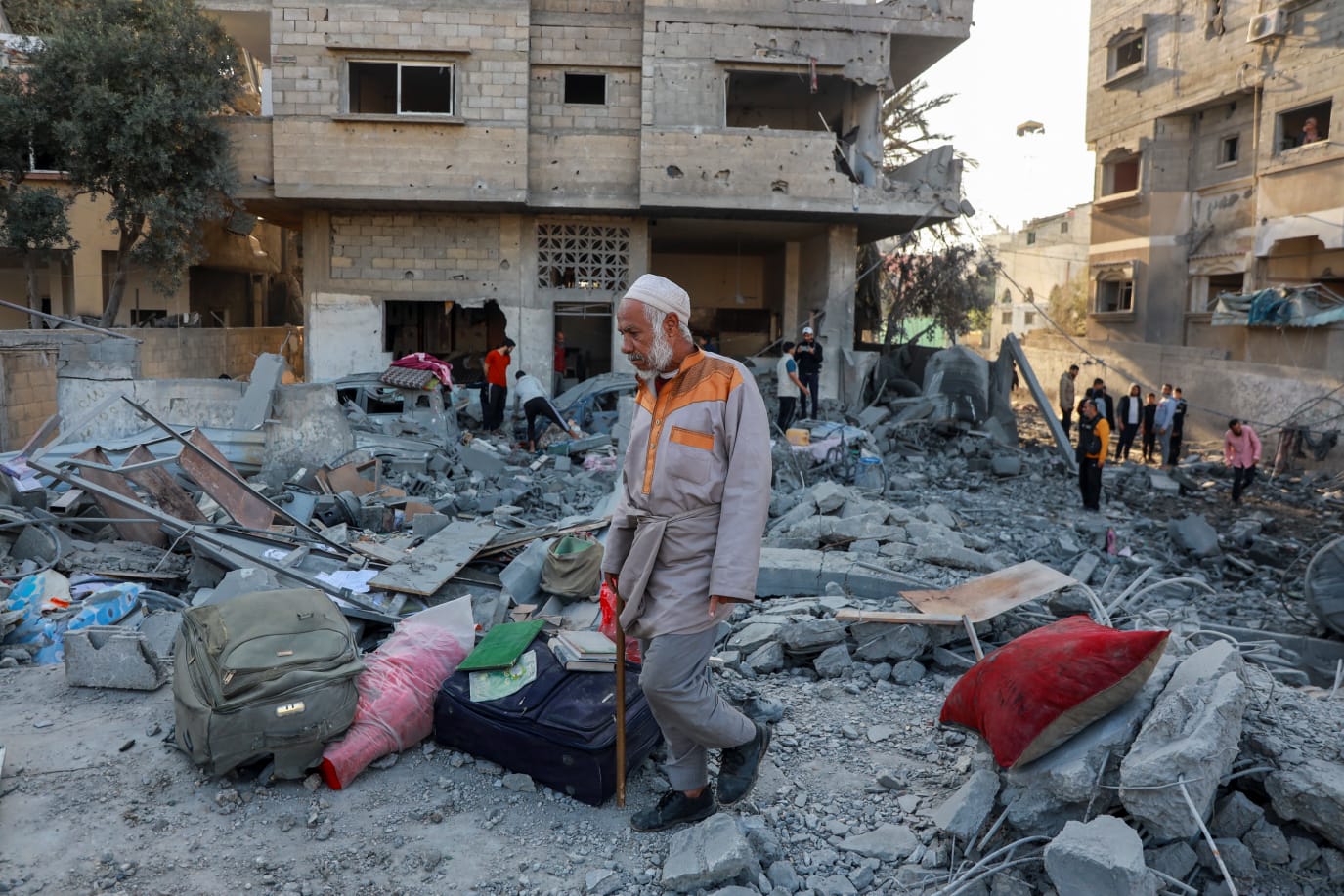Introduction
Israeli airstrikes across Gaza intensified on Thursday, April 18, 2025, killing close to two dozen Palestinians. The situation in Gaza has escalated sharply, with bombings targeting residential neighborhoods, refugee camps, and key infrastructure points. As a result, tensions in the region have soared, and international outcry has begun to swell.
Series of Strikes Unfold
The Israeli military launched a series of heavy airstrikes early in the morning. They claimed that the strikes targeted Hamas command centers, weapon depots, and militant hideouts. However, the bombs also flattened civilian homes and marketplaces teeming with people.
In Khan Younis, Israeli jets struck a densely populated residential area. Ambulances rushed to the scene, pulling bodies from the rubble while survivors screamed for their missing family members. Health officials in Gaza confirmed that at least eight civilians, including women and children, lost their lives in Khan Younis alone.
Meanwhile, in the northern part of Gaza, Israeli missiles hit the Jabalia refugee camp. Medical workers reported that the strike killed at least seven people. Horrified residents described scenes of utter chaos as bodies lay scattered and wounded children cried out for their parents.
Targeting Key Infrastructure
Israeli forces continued their assault by targeting key infrastructure. They bombed several power substations, plunging entire neighborhoods into darkness. Furthermore, a strike on a major water treatment plant cut off clean water access to thousands. Humanitarian organizations on the ground warned that the destruction of vital infrastructure could push Gaza even closer to a humanitarian catastrophe.
At midday, Israeli planes destroyed a school operated by UNRWA (the United Nations Relief and Works Agency for Palestine Refugees). Although Israel alleged that militants used the school as a base of operations, local sources insisted that dozens of displaced families had been sheltering inside. At least five people died in the attack, and many more sustained serious injuries.
Palestinian Response
In retaliation, Palestinian militant groups launched a barrage of rockets toward Israeli towns bordering Gaza. The Israeli Iron Dome defense system intercepted many of them, but some rockets managed to hit civilian areas, causing injuries and property damage. Consequently, sirens wailed across southern Israel, and residents scrambled for cover in bomb shelters.
Hamas, the ruling faction in Gaza, vowed revenge. Spokespersons called the strikes a “massacre” and promised that Israel would “pay a heavy price” for what they described as deliberate attacks on civilians. Islamic Jihad, another militant group, echoed similar sentiments, further stoking fears of an even broader conflict.
International Reaction
The global community reacted swiftly. The United Nations called for an immediate ceasefire and urged both sides to deescalate. Human Rights Watch demanded an independent investigation into the strikes, stating that preliminary reports indicated potential violations of international law.
Meanwhile, regional powers such as Egypt and Qatar initiated urgent diplomatic efforts. They sought to mediate a ceasefire before the violence spiraled further out of control. In Washington, D.C., U.S. officials publicly supported Israel’s right to defend itself but also expressed “deep concern” over the mounting civilian casualties.
Humanitarian Impact
The humanitarian situation in Gaza worsened dramatically. Hospitals, already stretched beyond their limits, struggled to treat the rising number of wounded. Shortages of medical supplies forced doctors to perform surgeries without anesthesia and reuse equipment.
Additionally, thousands of Palestinians fled their homes, seeking refuge wherever they could find shelter. UN agencies warned that without an immediate halt to hostilities, Gaza would face a full-scale humanitarian disaster within days.
As Thursday ended, the death toll continued to rise. Close to two dozen Palestinians lay dead, and many others fought for their lives in overcrowded hospitals. The relentless bombardment, the destruction of essential services, and the looming threat of full-scale war cast a dark shadow over the region.
Unless urgent diplomatic action succeeds, Gaza and Israel seem poised to plunge deeper into another bloody chapter of their longstanding conflict. The world watches anxiously, hoping that reason and humanity will prevail before more lives are lost.




